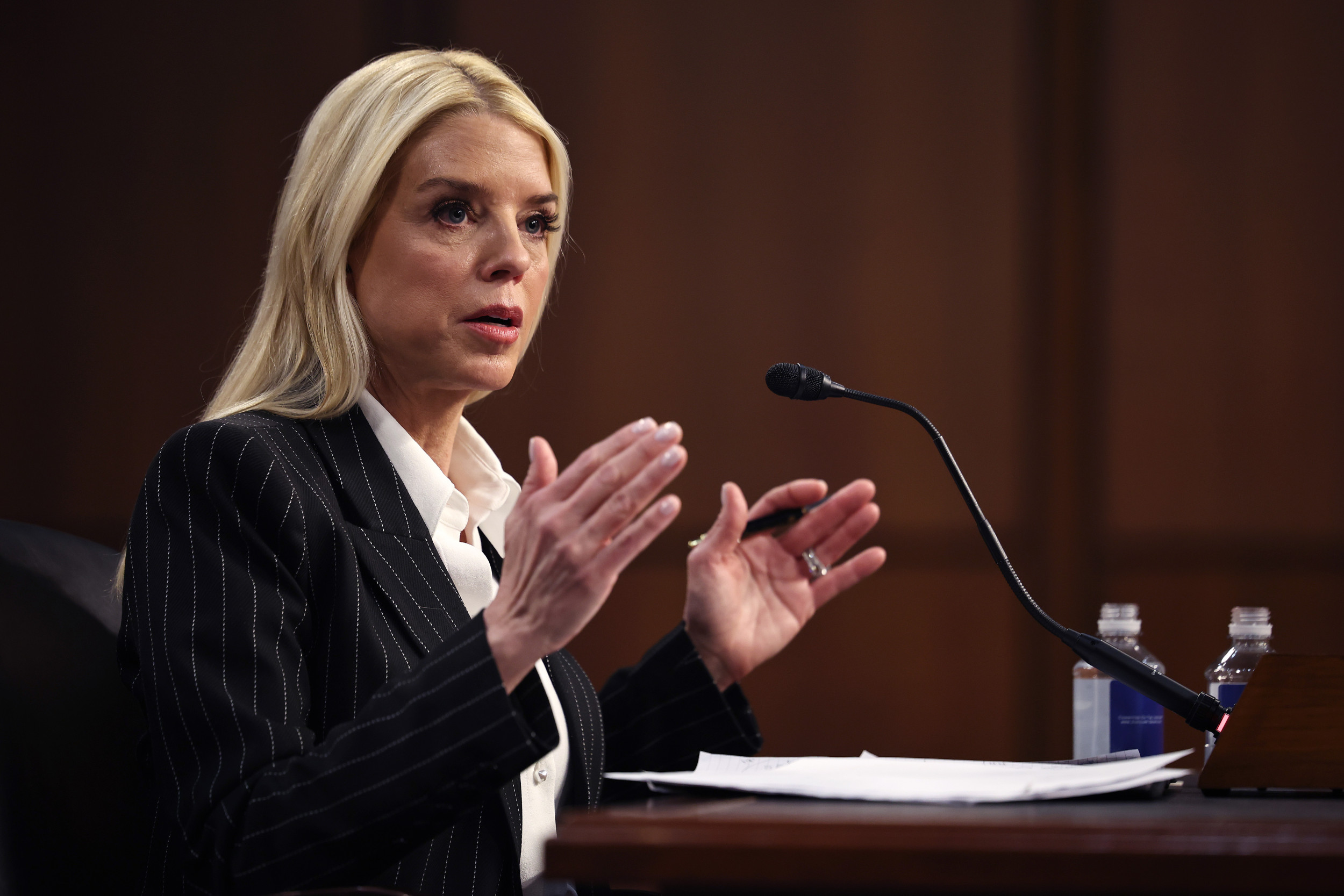U.S. Attorney General Pam Bondi has disbanded a task force established to target Russian oligarchs following the invasion of Ukraine, arguing that resources need to be shifted to focus on the administration’s anti-cartel efforts.
Newsweek reached out to the White House by email on Thursday evening for comment.
Why It Matters
President Joe Biden established Task Force KleptoCapture and the Kleptocracy Asset Recovery Initiative to punish Russian oligarchs in the wake of the Russian invasion of Ukraine. This empowered the U.S. to seize valuable assets, such as yachts worth $120 million, personal airplanes and funds based in the West.
However, President Donald Trump made it a top priority to hit Mexican cartels and criminal activity along and involving the southern border of the U.S.
To that end, Trump signed an executive order designating the cartels as Foreign Terrorist Organizations (FTO), equating the criminal organizations to groups such as ISIS and al-Qaeda and broadening the legal tools available to undermine them.
Chip Somodevilla/Getty Images
What To Know
Bondi issued a flurry of memos on various orders for the Department of Justice, including one with the subject on February 5, “Total Elimination of Cartels and Transnational Criminal Organizations.” The memo aimed to pursue “total elimination” of cartels and Transnational Criminal Organizations—but doing so by shifting priorities and resources from other operations, including Task Force KleptoCapture.
“The Criminal Division’s Money Laundering and Asset Recovery Section shall prioritize investigations, prosecutions, and asset forfeiture actions that target activities of cartels and TCOs,” the memo stated.
“Task Force KleptoCapture, the Department’s Kleptocracy Team, and the Kleptocracy Asset Recovery Initiative, shall be disbanded. Attorneys assigned to those initiatives shall return to their prior posts, and resources currently devoted to those efforts shall be committed to the total elimination of cartels and TCOs,” the memo added.
The memo also announced the suspension of many processes that might slow down the punishment of the cartels, such as the suspension of mandatory pre-indictment review for capital-eligible offenses and approval requirements for filings involving defendants alleged to be members or associates of cartels.
Former Deputy Attorney General Lisa Monaco in February 2024 announced that the task force had “restrained, seized, and obtained judgments to forfeit nearly $700 million in assets from Russian enablers and charged more than 70 individuals for violating international sanctions and export controls levied against Russia.”
What People Are Saying
Andrew Adams, the first leader of KleptoCapture, told Reuters: “Are we going to suddenly see a surge of sanctioned oligarch wealth flood into the United States? I don’t think so. What you will see is a sharp decline in the pace of charges that target facilitators that are specific to Russia.”
Nate Sibley, a fellow at the Hudson Institute and director of its Kleptocracy Initiative, wrote on X, formerly Twitter: “KleptoCapture had served its purpose in that officials had largely reverted to usual channels in coordinating oligarch sanctions In fact for past couple years focus shifted to enforcing other sanctions and export controls This isn’t the one I’m worried about…”
What Happens Next
The changes to KleptoCapture will last for 90 days before being renewed or made permanent thereafter, as determined by Bondi, according to the memo.
Cases opened as part of the task force’s duties will likely continue but no longer be focused through the Justice Department headquarters, according to Reuters.

